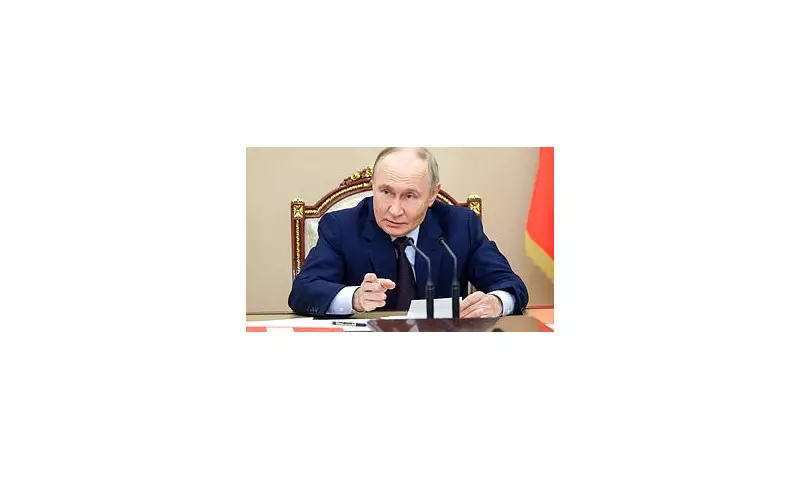
In a stark escalation of geopolitical tensions, Russian President Vladimir Putin has declared that Moscow is considering resuming nuclear weapons testing, directly responding to recent atomic trials conducted by the United States.
The Nuclear Standoff Escalates
The Russian leader delivered his chilling warning during a high-profile foreign policy conference in Moscow, sending ripples across the international security landscape. Putin stated unequivocally that Russia could revoke its ratification of the Comprehensive Nuclear-Test-Ban Treaty, potentially opening the door for a new era of atomic weapons testing.
Direct Response to American Actions
"We are aware of discussions in the United States about conducting nuclear tests," Putin declared, adding that while Russia had signed and ratified the nuclear test ban, "the United States has signed but not ratified." This asymmetry, according to the Kremlin, creates an unbalanced playing field in global nuclear diplomacy.
Historical Context and Modern Tensions
The Comprehensive Nuclear-Test-Ban Treaty, adopted in 1996, represents one of the cornerstones of international arms control. However, with neither the United States nor China having ratified the agreement, Putin suggested Russia might reconsider its position to maintain strategic parity.
"In theory, we could revoke our ratification," the Russian president stated, though he emphasised that the decision would require careful parliamentary consideration. "It would be up to the State Duma."
The Testing Facilities Readiness
Adding to the gravity of the situation, Putin confirmed that Russia's nuclear testing site in Novaya Zemlya remains fully operational and prepared for potential use. The Arctic archipelago has historically served as Moscow's primary nuclear testing ground during the Cold War era.
International Reactions and Implications
This development comes amid already strained relations between Moscow and Western powers, particularly following Russia's invasion of Ukraine. The potential resumption of nuclear testing represents:
- A significant escalation in global security tensions
- A potential arms race trigger between nuclear powers
- A challenge to decades of non-proliferation efforts
- Increased concerns among NATO member states
The Broader Strategic Picture
Putin's warning appears calculated to demonstrate Russia's unwavering position amid ongoing conflicts and international pressure. By raising the nuclear stakes, the Kremlin sends a clear message about its willingness to challenge existing international security frameworks.
The situation continues to develop as international observers monitor whether this rhetoric will translate into concrete action, potentially reshaping global nuclear deterrence strategies for years to come.





